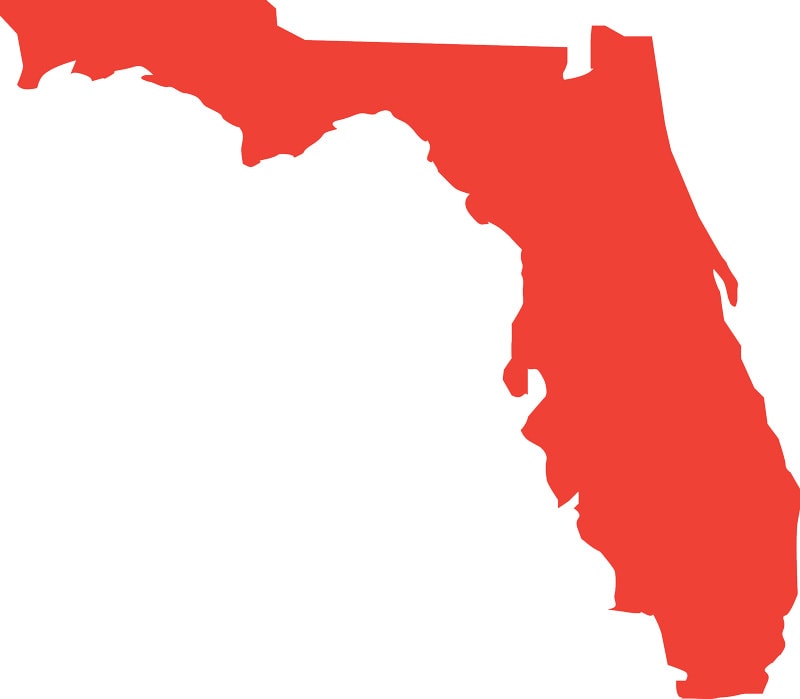Car insurance can be tricky. Most states require you to have liability car insurance, however, specific requirements vary from state to state. Depending on where you live, you may have to carry uninsured motorist coverage or medical payment coverage or coverage for personal injury. If you have a car loan or lease a car, you will likely have to include collision and comprehensive insurance as well. While there's a lot to unpack when it comes to auto insurance, it all comes down to what is required and how much coverage is right for you. Let's take a look.
How much Coverage is Right for You

What is Required and what is Not?
Minimum Requirements
First, it's important to understand how much car insurance is required by the state you live in. Car insurance coverage in your state may include liability insurance, uninsured motorist, personal injury protection, and medical payment coverage.
Most states require a minimum amount of liability insurance to pay for any damages you might cause in an auto accident to yourself and/or others.
This helps to cover the cost of any injuries to you or others and also pays for damage to your car and other property. About half of all states require this coverage.
This insurance takes care of medical expenses for a driver and any passengers, no matter who is at fault in an accident. PIP can also cover benefits not covered by health insurance such as lost wages due to an accident. This coverage is generally only required in "no-fault" states.
This covers yourself, your family, or your passengers in the event of an accident in which there are medical injuries. It is specific to medical expenses and Maine is the only state that requires it as part of your car insurance coverage.
When shopping for car insurance, it is best to shop around for the best prices on similar coverage. Cost quotes are free so why not compare quotes from several car insurance companies? Don't forget that insurance companies offer a lot of different discounts that could save you lots of money. We're talking about everything from bundling your car, motorcycle, boat, and home insurance to looking into good driver discounts, student discounts, military discounts, and more. You can even save money when you go paperless or when you pay your annual premium in full.
Financial Responsibility by State
In order to find out which of these types of insurance are mandatory in your state, the Insurance Information Institute (III) has created and online resource that shows automobile financial responsibility by state. You'll find the list here.
Comprehensive and Collision insurance
Though no state requires you to have comprehensive and collision insurance, this coverage pays for any damage to your car due to theft, vandalism, glass breakage, fire or acts of nature such as hail damage, landslides, flooding, or collisions including collisions with animals.
What are At-fault & No-fault States?
To put it simply, most states in America are at-fault states. That means the driver who causes an accident is responsible for taking care of the other driver's injuries and damages. There are eighteen U.S. states that are "no-fault" states in which you must carry PIP insurance for personal injury protection. They are Arkansas, Delaware, Florida, Hawaii, Kansas, Kentucky, Maryland, Massachusetts, Michigan, Minnesota, New Jersey, New York, North Dakota, Oregon, Pennsylvania, Texas, Utah, and Washington.
Interestingly, of these states, Kentucky, New Jersey, and Pennsylvania are "optional no-fault" states in which the driver chooses whether they will be held to a no-fault system. In those three states it is possible to opt out of PIP coverage.


Other State Requirements
Having car insurance is mandatory in every state except New Hampshire. In that state, should you choose not to have any auto insurance, you must prove you have sufficient funds to meet certain financial responsibility requirements in the event you cause an accident. Failure to meet those requirements may result in the suspension of your car's registration and your driver's license.
That said, every other state except Florida has minimum requirements for carrying at lease liability insurance for bodily injury and property damage. In Florida, you are only required to have liability coverage for property damage and PIP coverage. Meanwhile, in Virginia you can opt out of the state's car insurance requirements if you pay an annual $500 uninsured motorist fee. You are still on the hook for any damages you cause in an accident though.
How Much Insurance Do you Need?
You are required by law to purchase the minimum amount of car insurance as mandated by your state. However, state minimums won't provide sufficient coverage, especially for repairing damage to your car. Remember that liability insurance covers injuries and property damage suffered by others when you are at fault in an accident.
Liability and Uninsured Motorist
For liability insurance and uninsured motorist coverage, you'll want at least $100,000 coverage per person for bodily injury, $300,000 per accident for bodily injury, and $100,000 for property damage. Better coverage includes $250,000 per person bodily injury, $500,000 per accident for bodily injury, and $250,000 for property damage.
You want to carry enough liability insurance to cover all costs in a car accident. Talk to your agent about "umbrella policies" in which you can buy one million dollars or more of liability coverage for a fairly inexpensive amount.
Comprehensive and Collision
You'll also want to talk to your insurance agent about Comprehensive and Collision insurance. As mentioned, this insurance covers the cost to repair or replace your vehicle after it has been damaged in a crash. It is possible to cut down on what you pay for this coverage by selecting a higher deductible amount. That's the amount you'll need to pay out of pocket for your car repairs. For instance, your policy may come with a $500 deductible but if you choose a $1,000 deductible, your insurance premium payment will be less.
Personal Injury Protection (PIP)
PIP insurance is required in "no-fault" states but is also available in all states if you'd like to make sure you are covered for medical expenses to yourself and your passengers in an accident. One of the nice things about PIP is that it also pays for lost wages and even childcare. Basic PIP insurance usually covers 80 percent of medical bills and 60 percent of lost wages, while Extended PIP insurance takes care of up to 100 percent of your medical needs and 80 percent of lost wages and replacement services such as childcare.
Car Insurance Rates
According to the latest figures by Bankrate, as of this writing in 2023, the average cost of full coverage car insurance is $2,014 per year. Minimum coverage can be had for just $622 per year. So, full coverage comes out to $168 per month while minimum coverage costs an average of $52 per month. When it comes to the lowest prices on auto insurance, Geico, Erie, (and USAA if you are in the military or government), offers some of the best deals. It is important to remember that having a Driving Under the Influence (DUI) conviction can increase your car insurance by 94 percent. Never drink and drive!


